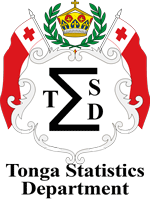Gender and Environment Survey 2022
The 2022 Gender and Environment Survey (GES) Tonga is a comprehensive national household survey exploring the multidimensional relationship of women and men with the environment in the Kingdom of Tonga. The survey estimates household and individual level exposure to the immediate consequences of recent disaster events and the prolonged impacts of climate change. It also evaluates the reciprocal influences of both women and men on the environment through their daily economic activities and livelihoods.
The 2022 GES Tonga was implemented by the Tonga Statistics Department (TSD) with support from the United Nations Entity for Gender Equality and the Empowerment of Women (UN Women). The content of the survey was based on guidelines provided by UN Women, including the Model Questionnaire for Measuring the Nexus between Gender and Environment, and adapted for the Tongan context in consultation with national stakeholders from the Ministry of Internal Affairs; the Ministry of Meteorology, Energy, Information, Disaster Management, Environment Climate Change and Communications; the Ministry of Fisheries; and the Ministry of Agriculture, Food and Forests; as well as civil society groups, including the Tonga National Centre for Women and Children and the Women and Children Crisis Centre Tonga. Estimates from this survey provide sex-disaggregated data for national and global monitoring frameworks, including the 2030 Agenda for Sustainable Development, the Sendai Framework for disaster risk reduction and the Global Set of Climate Change Statistics and Indicators.
The data collection and analysis took place following one of the largest recent volcanic eruptions in the Tongan archipelago in January 2022, situated just 70 kilometres from Nuku’alofa, the capital city. Plumes from the eruption spread over the ‘Eua, Ha’apai, Vava’u and the Ongo Niua island groups, and a resulting tsunami crossed the Pacific, affecting the neighbouring countries of American Samoa, Fiji and Vanuatu. The findings reflect on the vulnerability of the Pacific region to frequent disaster events, the long-term impacts of climate change and the individual experiences of women and men who are confronted daily with these impacts.
